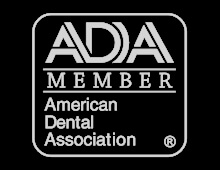Does Invisalign Cause Gum Recession or Gum Disease?
Gum disease occurs when the gums that surround and support your teeth are infected. Most patients who are facing gum disease are unaware they have it because this condition rarely causes any pain. By visiting your dentist on a regular basis, you can be evaluated for signs of gum disease.
While the bacteria in plaque is the most common cause of gum disease, this condition may also arise because of crowded teeth, grinding of the teeth, the use of smoking and tobacco, poor nutrition, and stress.
When you go to the dentist, you will likely have your gum depth tested. This is when they use the “pick” looking tool to see how deep your gums are. While this is not exactly comfortable, it does allow the dentist to better understand if your gums are healthy. If you have not flossed or used your WaterPik in several months, you may get a stern talking to by your dentist and the dental assistants.
Invisalign is Not Correlated to Gum Disease
Recently, several patients at Mile High Smiles have asked us whether Invisalign has the potential to cause gum disease. They are relieved to find out that Invisalign will not cause gum disease. However, some patients with Invisalign may notice gum recession, which is a condition that results when the gum tissue is recessed and exposes the roots of the teeth.
If you do have gum recession, Dr. Brian Levitin will thoroughly evaluate it before designing an Invisalign treatment plan. He will likely recommend that you treat the recession prior to undergoing Invisalign or another orthodontic treatment.
Fortunately, a procedure called a frenectomy can help you with gum recession. In this procedure, the muscular attachment between two tissues that prevents tissues from moving far will be removed or repositioned.
Frequently Asked Questions About Gum Disease
What are the symptoms of gingivitis?
Early gum disease or gingivitis typically leads to red, swollen gums and bleeding during brushing and flossing. If you have gingivitis, you may also notice bleeding any time you eat crunchy or hard foods.
What are the symptoms of gum disease?
Left untreated, gingivitis can turn into full fledged gum disease. Loose teeth are the most common symptom of this disease and may eventually fall out. Red, swollen gums, teeth that appear longer, large spaces between teeth, and chronic bad breath may also indicate gum disease.
Why does gum disease occur?
The most common causes of gum disease are poor dental hygiene and smoking. Your age, genetics, and conditions like heart disease and diabetes may also contribute to gum disease.
How can I prevent gum disease?
By taking great care of your teeth and gums, you can reduce your risk of gum disease. Quitting smoking and getting underlying conditions like diabetes and heart disease are sure to help as well.
Why does gum disease need to be treated right away?
It’s important to treat gum disease as soon as possible. If you wait to do so, you may experience gum abscesses and pus oozing from around your teeth. Also, the bone supporting your teeth can be lost over some years. Treatment can become very difficult if the disease is left untreated.
Can gum disease lead to other health problems?
Unfortunately, gum disease has been linked to life-threatening conditions like diabetes, stroke, Alzheimer’s disease, and obesity. It’s also the most common cause of tooth loss in the United States.
What are the most common treatments for gum disease?
Scaling, root planing, and antibiotics are the most common non-surgical treatments for gum disease. If surgery is necessary, flap surgery, soft tissue grafts, or bone grafting may be performed.
Contact Mile High Smiles Today
If you have further questions on gum disease, gum recession, or Invisalign, we encourage you to schedule an appointment at Mile High Smiles today. Call us at 303-232-1830. If you are seeking a Lakewood, Colorado Invisalign specialist, reach out to us now.







